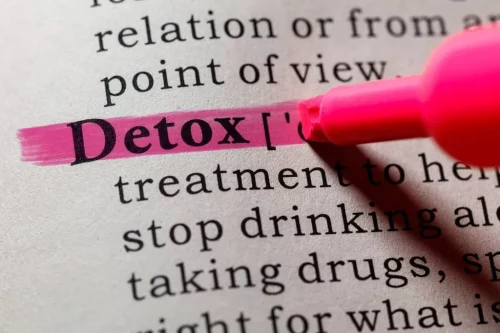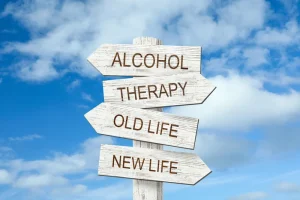Opposing Effects of Alcohol on the Immune System PMC
Here are some skills you can share with your student to help them respond in an emergency situation. If this is your first time talking with your student about substance use, it’s important to be prepared for the fact that your student may initially be reluctant to engage with you. They may be afraid of getting in trouble or feel as though they’ve heard everything there is to hear about alcohol and other drugs.
- Light yellow means you are drinking enough fluids, and dark yellow or orange can indicate you are dehydrated.
- This condition can be mild, moderate, or severe, depending on the number of symptoms you have.
- Here’s a breakdown of alcohol’s effects on your internal organs and body processes.
Thinking of Stopping Drinking? 9 Tips to Succeed
Quitting drinking will not reverse any damage that’s already been caused by inflammation. Maintaining gut homeostasis—beneficial microbiota composition—plays a critical role in immune responses. By fermentation of complex carbohydrates, anaerobic bacteria in the gut produce short-chain-fatty acids (SCFAs), which are essential for modulation and mediation of the immune system. SCFAs produced in the gut are mainly butyrate, propionate and acetate and have many different targets and functions in the host organism.
Medical Links
Upon LPS binding, monocytes become activated, mature into macrophages and migrate into tissues where they respond to infection by secreting various cytokines, recruiting additional leukocytes via production of chemokines and presenting pathogen-derived peptides to T cells to activate them. Often, investigators stimulate with LPS after pre-exposure to ethanol to mimic inflammation observed in trauma patients with high blood alcohol levels and explore the can alcohol weaken your immune system alterations in immunity that lead to frequent subsequent infections among this group. Alcohol abuse suppresses multiple arms of the immune response, leading to an increased risk of infections. The course and resolution of both bacterial and viral infections is severely impaired in alcohol-abusing patients, resulting in greater patient morbidity and mortality. Multiple mechanisms have been identified underlying the immunosuppressive effects of alcohol.
HuffPost Personal
Contact Gateway Foundation to learn more about how we can help you or your loved one pursue recovery. If you drink twice or week or less and only drink two to three drinks per occasion, your immune system may not be at a high risk of damage. If you find it challenging to limit or stop your alcohol intake, it may be time to seek help for alcohol addiction. The frequency at which a person drinks also determines how much it affects the immune system. A person who drinks every day is more likely to have a weakened immune system and experience health complications than someone who rarely drinks or only drinks on occasion. However, women who drink more than two drinks on one occasion and men who drink more than three drinks on one occasion may experience more health complications due to their excessive alcohol consumption.
Modulation of Immunity by Nutritional Change in AUD
From March 7 to April 11, alcohol sales surged by 26 percent in the United States. People report drinking far more frequently and earlier in the day than they did pre-pandemic. Cellulitis is a bacterial infection of the skin’s deeper layers that causes pain, swelling, and, redness in the skin’s infected area. It’s a common infection, but it can cause serious health complications if left untreated and spread breaks in the skin, such as cuts, bites, ulcers, and puncture wounds, which can allow bacteria into the skin. This condition occurs when bacteria enter the chest cavity’s pleural space, typically due to pneumonia or a post-surgery infection. A weakened immune system increases an individual’s chances of developing empyema.
Septicemia is a serious condition because it can cause the bloodstream to carry bacteria and toxins throughout the entire body. Without rapid hospital treatment, septicemia can lead to sepsis, which is life-threatening. When ALD reaches its final stage, known as alcoholic liver cirrhosis, the damage is irreversible and leads to complications. The damage is irreversible because scar tissues build up and replace the liver’s regenerative cells, preventing the organ from healing. Heavy drinking can also increase your blood pressure and blood cholesterol levels, both of which are major risk factors for heart attacks and strokes. If you drink more than 12 units of alcohol, you’re at considerable risk of developing alcohol poisoning, particularly if you’re drinking many units over a short period of time.
Alcohol’s physical effects on the body
- Healthy habits, such as being active, eating a balanced diet, and getting enough sleep, can keep your immune system strong.
- A good place to start to receive treatment for alcohol use is to talk to your healthcare provider.
- Alcohol consumption also damages epithelial cells, T cells, and neutrophils in the GI system, disrupting gut barrier function and facilitating leakage of microbes into the circulation (see the article by Hammer and colleagues).
- DCs uptake antigens in peripheral tissues which leads to their maturation, and then travel to draining lymph nodes where they present them to T cells (Janeway 2008).




